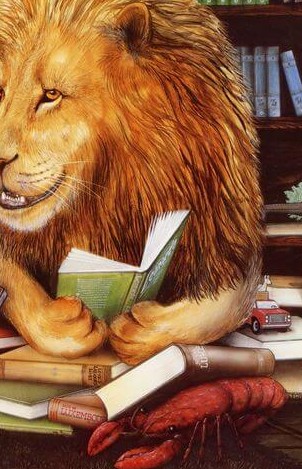Literacy Blogs
- All
- 3-cueing
- academic learning time
- academic vocabulary
- accommodations
- accountability testing
- Active View of Reading
- adolescent literacy
- afterschool programs
- alphabet
- amount of instruction
- amount of reading
- argument
- assessment
- auding
- author awareness
- automaticity
- balanced literacy
- beginning reading
- Book Buddies
- Book Flood
- challenging text
- classroom organization
- close reading
- coaching
- cohesion
- Common Core State Standards
- complex text
- comprehension strategies
- content area reading
- context analysis
- curriculum materials
- Daily 5
- decoding
- departmentalization
- DIBELS
- dictionary skills
- digital texts
- disciplinary literacy
- dyslexia
- early interventions
- effective teachers
- Emily Hanford
- executive function
- family literacy
- fingerpoint reading
- foundational skills
- graphic novels
- guided reading
- heterogeneous grouping of students
- homework
- improving reading achievement
- independent reading
- independent reading level
- informal reading inventories
- informational texts
- instructional level
- invented spelling
- jigsaw instruction
- knowledge
- leadership
- learning disabilities
- Lexiles
- linguistic comprehension
- listening comprehension
- literacy charities
- literacy policy
- literary interpretation
- main idea
- morphology
- motivation
- narrative text
- National Early Literacy Panel
- nonsense words
- oral language
- oral reading fluency
- paraphrasing
- Pause, Prompt, Praise (3P)
- personalized learning
- phonemes
- phonemic awareness
- phonics
- press and media
- principals
- prosody
- Readers' Workshop
- reading comprehension
- reading disabilities
- reading intervention
- reading levels
- reading models
- Reading Recovery
- reading research
- reading skills
- reading strategies
- reading to children
- reading wars
- reading-writing relations
- remedial reading
- rereading
- Response to Intervention
- Scarborough's Rope
- science of reading
- seatwork
- semantics
- sentence comprehension
- sequence of instruction
- set for consistency
- set for variability
- shared reading
- shared reading
- sight vocabulary
- simple view of reading
- Simple View of Reading
- small group instruction
- social studies
- sound walls
- Special Education
- speech-to-print phonics
- spelling
- stamina
- summarizing
- Sustained Silent Reading
- syllabication
- syntax
- syntax
- testing
- text complexity
- text interpretation
- text reading fluency
- text structure
- theme
- think-pair-share
- trauma
- visualization
- vocabulary
- word walls
- writing
- zone of proximal development (ZPD)
“It Works” and Other Myths of the Science of Reading Era
Recently, I wrote about the science of reading. I explained how I thought the term should be defined and described the kind of research needed to prescribe instruction. Today I thought I’d put some meat on the bone; adding some details that might help readers to grasp the implications of a scientific or research-based approach to reading. What does it mean when someone says an approach to reading instruction “works”? The term “it works” has gnawed at me for more than fifty years! I remember as a teacher how certain activities or approaches grabbed me. They just seemed right. Then I’d try them ...
How Do You Know if it Really is the Science of Reading?
The literacy field has long been beleaguered by generic terms that no one seems to understand – or more exactly, of which nobody agrees on the definitions. Terms like whole language, balanced literacy, direct instruction, dyslexia, sight words, and guided reading, are bandied about in journals, conference presentations, newspaper articles, and teacher’s lounges as if there was some shared dictionary out there that we were all accessing. Even terms that seem like they would be widely understood like research or fluency often turn out to be problematic. This plague of vagueness is exasperating, and I think it prevents productive dialogue or ...
More on Hanford: Phonics Reform and Literacy Levels
Recently, I posted commentary on Emily Hanford’s reporting and the critical response it received from some in the literacy community. I defended the major thrust of her work and called out criticisms I thought to be illogical, ill conceived, or ill intended – criticism more aimed at maintaining status quo than promoting literacy. I admitted that my endorsement of that journalism was not without limits. I had concerns and said I may write about them in the future. The future has arrived. I expressed two concerns, one substantive and one more stylistic. Let’s get the less important one out of the way ...
Teaching Reading to Students Who Experience Trauma
Teacher question: I’m interested in whether personal grief trauma and PTSD (post-traumatic stress disorder) effect reading comprehension or learning to read. Over the years, I have had students who have lost parents or siblings, and some who are witnesses to (or victims of violence). What does research say about these students’ reading ability and what should we be doing to make sure they learn to read as well as possible? Shanahan response: You’re not the only one who has wondered about this. Researchers, educators, researchers, and lawyers have all taken a swing at it – conducting correlational studies, crafting potentially valuable instructional responses, and ...
Is Emily Hanford right?
Teacher question: Our school district is all abuzz about “Sold a Story,” a documentary about reading instruction, and the response it is getting from some reading experts. We’ve been surprised that you haven’t written about this. We’re sure you have an opinion. Would you be willing to share it? Shanahan responds: I admire Emily Hanford and her work. I’ve been interviewed several times by her over the years. She always has treated me respectfully. She asks probing questions and relies on relevant research for the most part. In my experience, her quotes are accurate and fitting. That doesn’t mean I necessarily agree with all ...
Monitoring the Reading Comprehension of Older Students
Teacher question: I’m writing to you about high school progress monitoring for reading comprehension. Our school has learning goals for Reading Comprehension. Every two weeks, students read an on-grade level passage and answer 5 multiple-choice questions that assess literal comprehension and main idea. Our data are not matching well with other data that we have (such as course passing rates and state assessments). What might be a more effective progress monitoring process, that go beyond the literal level, and that would provide information the teachers could use to improve instruction. RELATED: Shared Reading in the Structured Literacy Era Shanahan response: I’m not surprised that approach ...
Best Literacy Charities 2023
’Tis the time of the year, that Shanahan on Literacy recommends literacy charities for your consideration. Users of this site have deep concerns about literacy education, so it makes sense to donate to charities that distribute books to children or provide reading instruction to those in need. Every year, I consult Charity Navigator (U.S.) and Charity Intelligence (Canada) to identify the top-rated literacy charities (4-star in U.S., and 5-star in Canada). You can be sure that the charities listed here: Are international, national, or multi-regional in scope, Focus entirely or mainly on charitable action devoted to providing books and literacy instruction to populations ...
Shared Reading in the Structured Literacy Era
Teacher question: Can you provide clarification on how to promote shared reading in the structured literacy era and how that differs from shared reading in the balanced literacy era. I would think a teacher could certainly initially read the text aloud to students to model fluency and expression, but then must ensure students can get the words off the page and reread by decoding the words, rather than parroting the teacher or memorizing the shared reading text that may be a rhyme/song that is catchy. Shanahan response: There are many reasons to read to children. Most of them are pretty sensible. Some are more ...
Comprehension Instruction That Really Helps – Teaching Cohesion
Teacher question: One of my colleagues told us that we should not be teaching guided reading lessons or comprehension skills or strategies. We’re using a core reading program that includes those kinds of things. He says that the science of reading proves that we would get higher reading achievement by teaching more social studies and science (he’s our science teacher) and dropping the comprehension instruction that we are providing. He’s really vocal about this. Can you help us shut him up? RELATED: Shared Reading in the Structured Literacy Era Shanahan response: Your colleague is partly right. Knowledge about the world is a valuable commodity in ...
Teaching Students to Use Context
I’m writing this blog because of the disarray I see over the topic of context instruction and the poor instructional practice that it seems to manifest. One confusion is already well recognized, but merits some mention here. The other befuddlement usually goes without remark, and yet it, too, has unfortunate consequences for young readers. Let’s dispatch the first problem forthwith. This one I’ll refer to as the three-cueing problem. Research found that when students err in reading a word, they often try to use various kinds of information to resolve the difficulty. Essentially, when something goes wrong, readers try to make things ...
.jpg)


,-2009.jpg)




-Het-grote-interieur,-1939.jpg)
